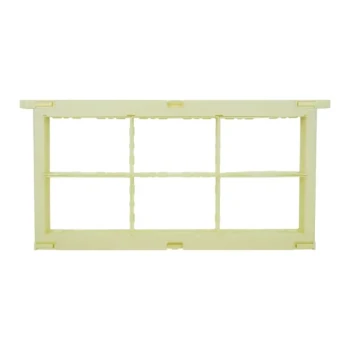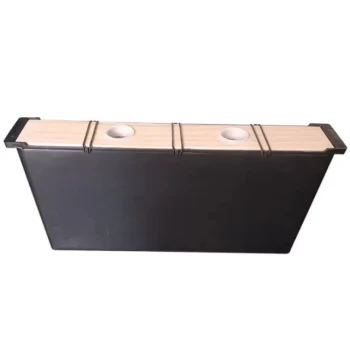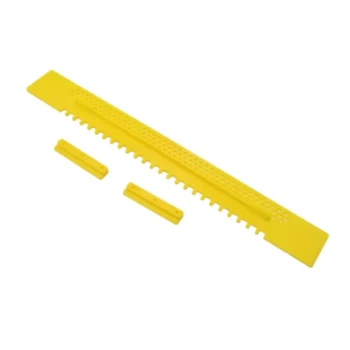In a standard Langstroth hive, supers are available in three distinct sizes. These boxes, which are placed on top of the main hive body to collect surplus honey, are known as Deep, Medium (or Illinois), and Shallow. Each size corresponds to a specific frame height and is designed to balance honey capacity against lifting weight.
The core decision in choosing a super size is a direct trade-off between its potential honey yield and its manageable weight. Your choice will define your physical workload and equipment strategy for the entire season.
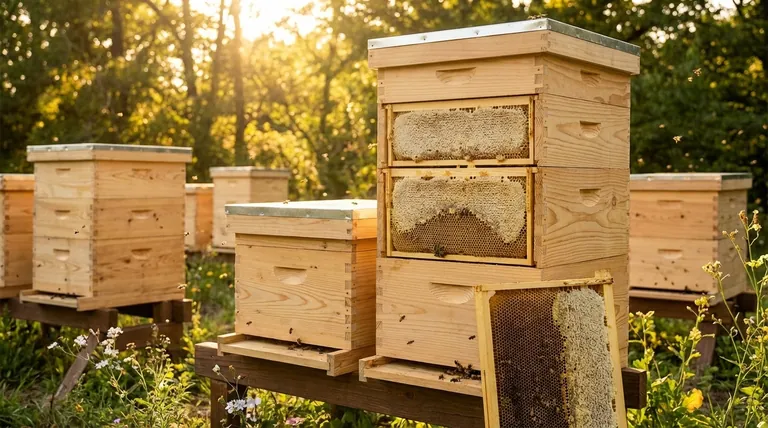
The Role of the Super in a Hive
A hive is a modular system, and the "super" is simply a box added for a specific purpose. While any size box can technically be used for any function, convention has created a clear distinction.
The Brood Box vs. The Honey Super
The bottom-most boxes of the hive are called hive bodies or brood boxes. This is where the queen lays her eggs and the colony raises its young.
The boxes placed on top of the brood boxes are the honey supers. Their purpose is to give the bees space to store surplus honey that the beekeeper can later harvest.
Deconstructing the Standard Super Sizes
The terms deep, medium, and shallow refer to the height (or depth) of the box. While the length and width are standardized for a 10-frame or 8-frame Langstroth hive, the height is the defining variable.
The Deep Super (9 5/8 inches)
This is the largest and heaviest option. Because of its substantial volume, it is most commonly used as the primary brood box for the colony.
Using a deep as a honey super allows for maximum honey storage in a single box, but it becomes extremely heavy, often weighing 80-90 pounds when full.
The Medium Super (6 5/8 inches)
Also known as the "Illinois" super, the medium is the versatile middle ground. It is lighter than a deep but holds a respectable amount of honey.
Many beekeepers standardize their entire operation on medium-sized boxes for both brood and honey. This creates a simple, interchangeable system where frames can be moved between any box in the hive.
The Shallow Super (5 11/16 inches)
This is the smallest and lightest option, making it the easiest to lift. A full shallow super typically weighs only 30-40 pounds.
Shallow supers are ideal for beekeepers who want to minimize physical strain. They are also the preferred size for producing comb honey, as the smaller frames are easier for bees to fill and cap completely.
Understanding the Trade-offs
Choosing a super size isn't just about honey; it's about creating a system that works for you and your bees.
The Central Conflict: Weight vs. Capacity
The primary trade-off is straightforward. Larger boxes hold more honey but require more physical strength to manage. A full deep super can be a serious lifting hazard for many people.
Consider that you will be lifting these boxes multiple times throughout the season for inspections and harvesting. Be realistic about what you can comfortably and safely handle.
The Power of Interchangeability
Using a single box size for your entire hive (e.g., all mediums) dramatically simplifies equipment management. You only need one size of frame and one size of foundation.
This uniformity allows you to move frames of honey, pollen, or even brood between boxes as needed to manage the colony's health and growth. This flexibility can be a significant advantage.
Equipment and Extraction
While all three sizes work with standard hive components like covers and bottom boards, your honey extraction process may be affected.
Most modern honey extractors can handle all frame sizes, but using a single size simplifies the uncapping and loading process, creating a more efficient workflow during the busy harvest period.
Choosing the Right Super for Your Apiary
Your beekeeping goals and physical abilities should dictate your equipment choices.
- If your primary focus is maximum honey production with fewer boxes: Choose deep supers for honey, but be fully prepared for the heavy lifting required.
- If your primary focus is simplicity and versatility: Standardize your entire apiary on medium supers for both brood and honey to create a flexible, easy-to-manage system.
- If your primary focus is minimizing physical strain or producing comb honey: Use shallow supers, which provide the lightest possible weight per box.
Ultimately, the best hive configuration is one that allows you to effectively manage your bees without injury or strain.
Summary Table:
| Super Size | Height (inches) | Full Weight (lbs) | Primary Use |
|---|---|---|---|
| Deep | 9 5/8 | 80-90 | Brood Box / High-Capacity Honey |
| Medium (Illinois) | 6 5/8 | ~40-60 | Versatile (Brood & Honey) |
| Shallow | 5 11/16 | 30-40 | Comb Honey / Low-Weight Option |
Ready to Build Your Ideal Hive Configuration?
Choosing the right supers is crucial for a productive and sustainable apiary. At HONESTBEE, we supply commercial apiaries and equipment distributors with high-quality, durable supers in all standard sizes. Our wholesale-focused operations ensure you get the reliable equipment you need to manage your hives efficiently and safely.
Let us help you optimize your equipment strategy—contact our team today to discuss your specific needs and place your order!
Visual Guide
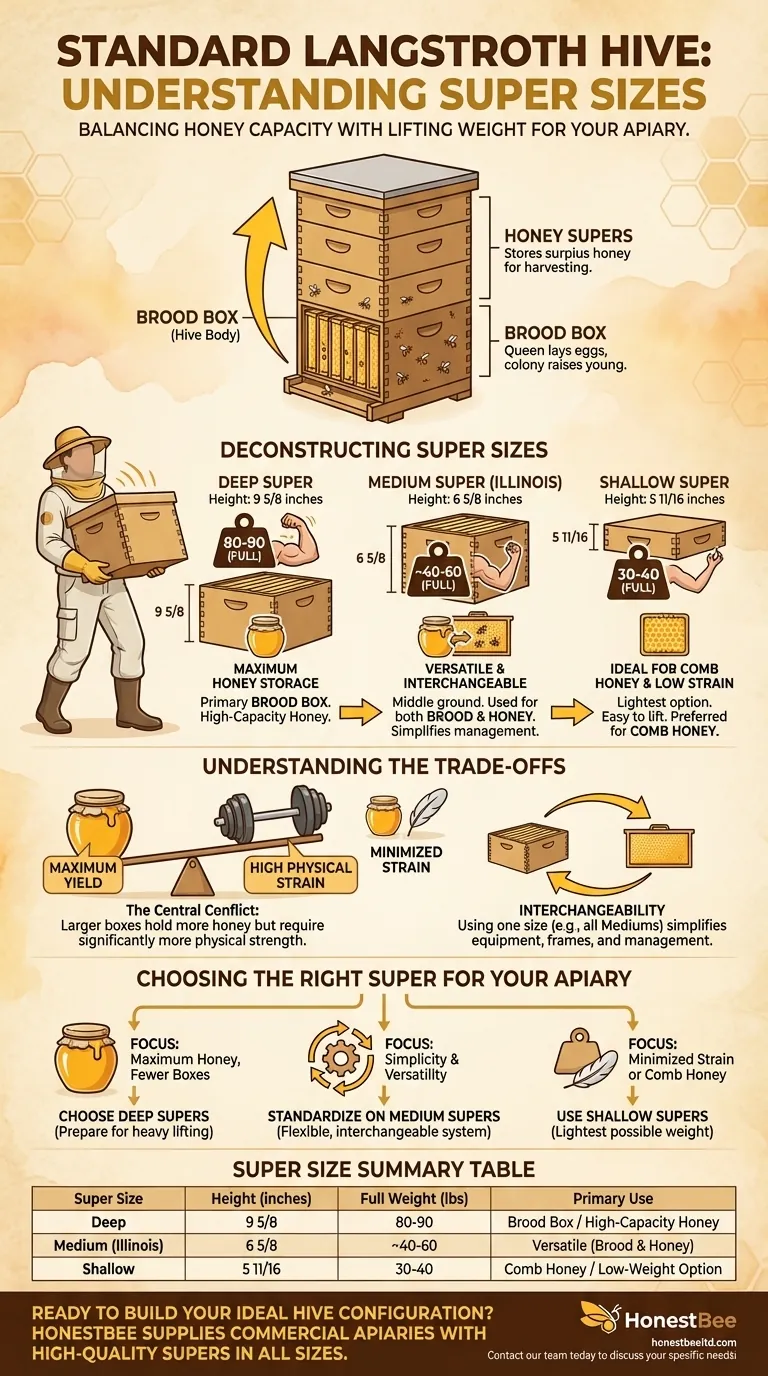
Related Products
- Australian Langstroth Beehive Boxes for Beekeeping Wholesales
- Langstroth Honey Bee Box Hive Boxes for Different Depths
- Langstroth Bee Hives Bee Keeping Box for Beginners Beekeeping
- 5 Frame Langstroth Poly Nuc Corrugated Plastic Nuc Boxes
- Portable Bee Mating Hive Boxes Mini Mating Nucs 8 Frames for Queen Rearing
People Also Ask
- What is the best hive for beginners? A Guide to Langstroth, Top Bar, and Flow Hives
- Why might a beginner be advised to start with a Langstroth hive? Unlock a Supportive Beekeeping Ecosystem
- How many frames fit into a standard beehive box? Choose Between 8-Frame and 10-Frame Hives
- How do 8-frame vs 10-frame Langstroth hive bodies compare? Choose the Right Box for Your Apiary
- What are the three types of beehives? Find the Perfect Hive for Your Beekeeping Philosophy






